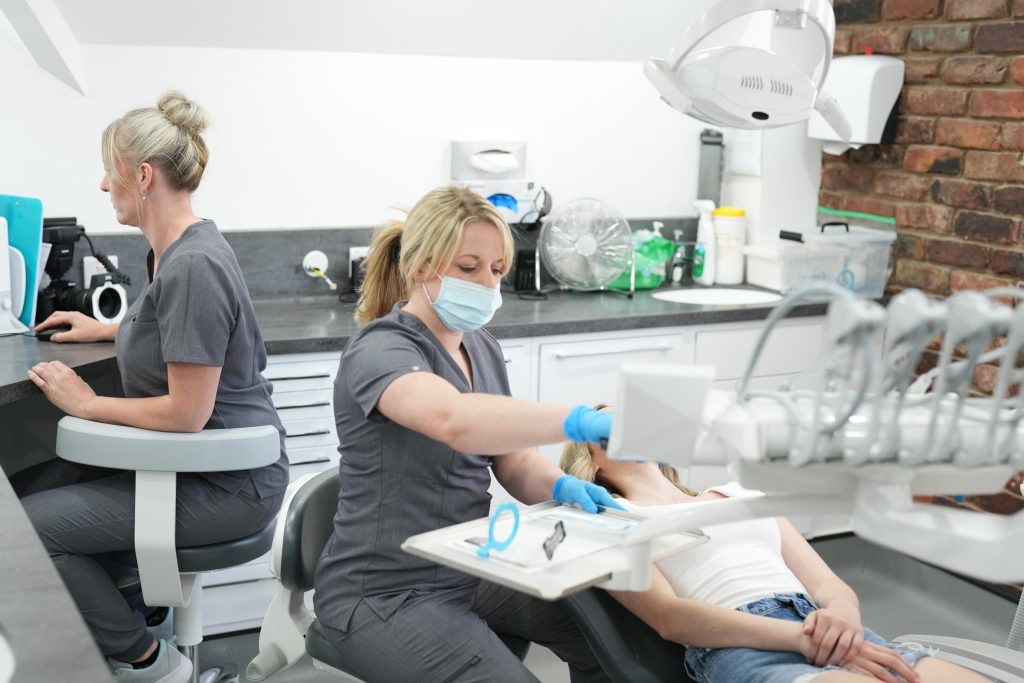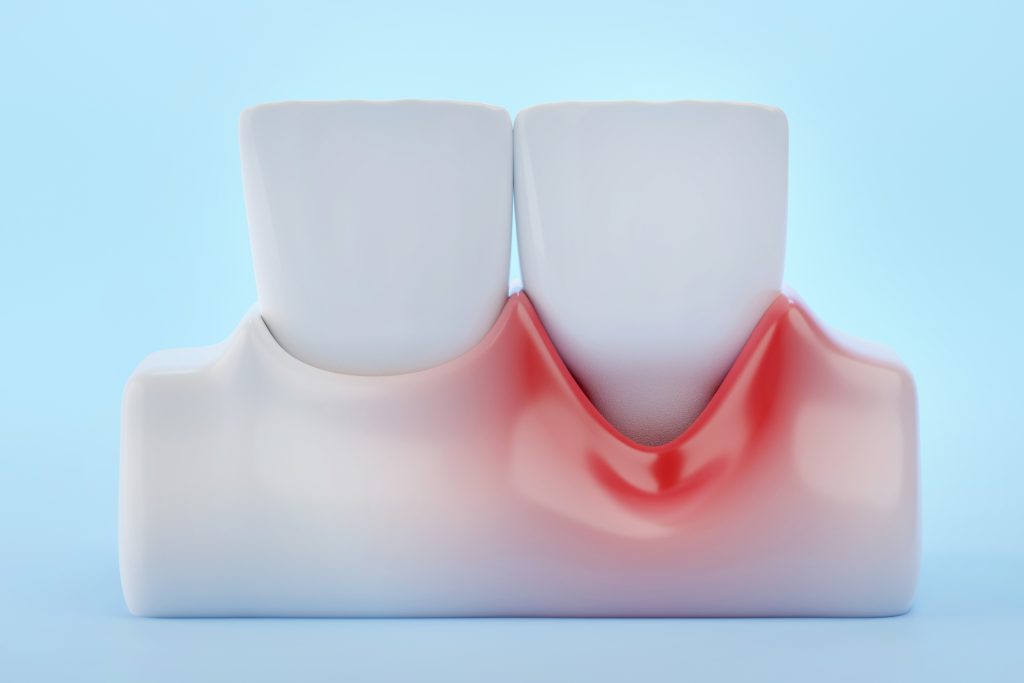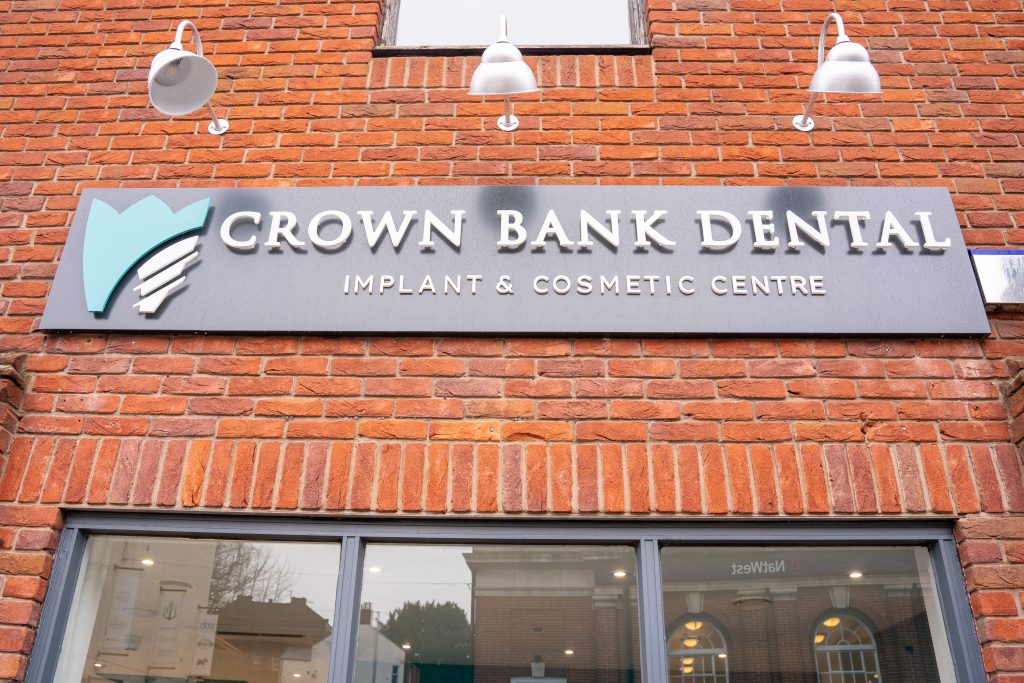

Oral health may not be the first thing that comes to mind when you think of diabetes. However, research shows a strong connection between the two. Understanding how your oral health and diabetes are linked is vital to your overall well-being. Crown Bank Dental is proud to be your local expert on the matter in Cheshire. Additionally, our neighbours at Congleton Lions Community Group have partnered with Diabetes UK to raise awareness about the disease and its link to oral health. So, to aid the collaboration , we’ve highlighted how diabetes impacts oral health, the bidirectional relationship between gum disease and diabetes, and tips for maintaining your oral hygiene as a diabetic below.

Living with diabetes means your body processes sugar differently, which can affect many of your body’s systems. Here’s how diabetes impacts oral health:
If your blood sugar levels are higher than normal, your gums are at greater risk of inflammation. Gum inflammation, known as gingivitis, can progress to more severe problems such as periodontal disease which causes bone loss around teeth. People with diabetes are more likely to experience gum disease due to their reduced ability to fight infections.
Dry Mouth
Diabetes can decrease saliva production, leaving your mouth feeling dry. Saliva acts as a natural cleanser, helping to prevent bacteria from settling on your teeth and gums. A lack of it increases your risk of tooth decay, gum disease, and discomfort.
Slower Healing
Diabetes slows the body’s ability to heal wounds. This can be a problem when treating gum disease or recovering from dental procedures like extractions or implants.
Bacterial Growth
Higher blood sugar levels make your mouth a more welcoming environment for harmful bacteria. These bacteria can team up with food particles, forming plaque on the teeth and gums.
Plaque Buildup and Tooth Decay
Plaque is a sticky substance that forms on your teeth when bacteria feed on sugars in your mouth. If left unremoved, plaque hardens into tartar (calculus) and can lead to cavities or gum disease, especially if you have diabetes.
Did you know the connection between diabetes and gum disease is a two-way street? One can influence the other in surprising ways.
Gum Disease Can Worsen Blood Sugar Control
If you have gum disease, the inflammation can make it harder for your body to control blood sugar levels. This creates a cycle, as poor blood sugar control further raises the risk of gum disease.
Treating Gum Disease Improves Blood Sugar Control
Addressing gum disease doesn’t just improve your oral health. It can also help you manage your diabetes. Studies report that treating gum problems can lead to better blood sugar control, offering a win-win for your overall health.

Recognising the signs of gum disease early can help prevent dental complications. If you notice any of the following symptoms, contact a dentist near you to assess your gum health:
Managing your oral health while living with diabetes doesn’t need to feel overwhelming. Incorporate these simple but effective habits into your routine:

Taking control of your oral health starts with the right support. At Crown Bank Dental in Cheshire, we specialise in oral healthcare for individuals managing diabetes. Our expert team will assess your gum health, provide personalised advice, and work with you to create a plan that fits your needs. Contact us today to book your gum health appointment.
Back to Blog
“Very polite and pleasant staff. Made to feel very comfortable stress free.”

“The staff were all very pleasant, kind & caring, Covid prevention was high on their list & I felt safe…”

“Brilliant dentist. I had a 4 hour appointment today for replacement veneers. I Will explained every step of my treatment.…”

“I was dealt with in a professional and friendly manner. The treatment took one hour to complete. During this time…”

“I'm a nervous patient, took me years to pluck up the courage to book a dentist appointment. The staff here…”